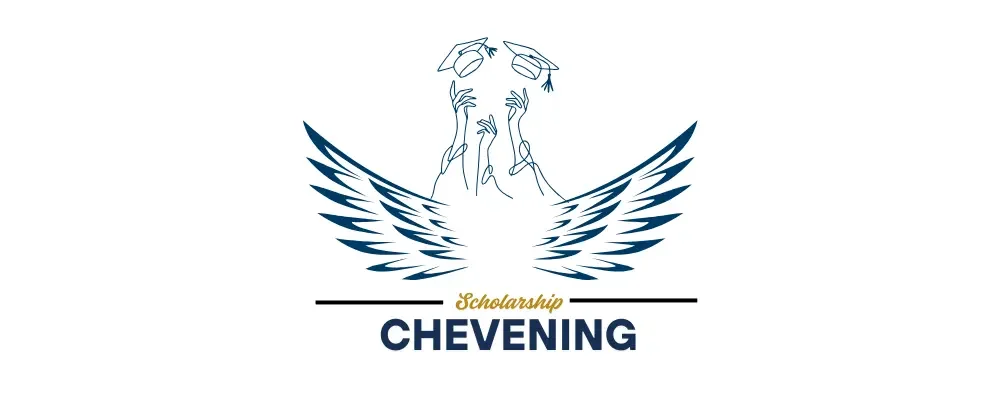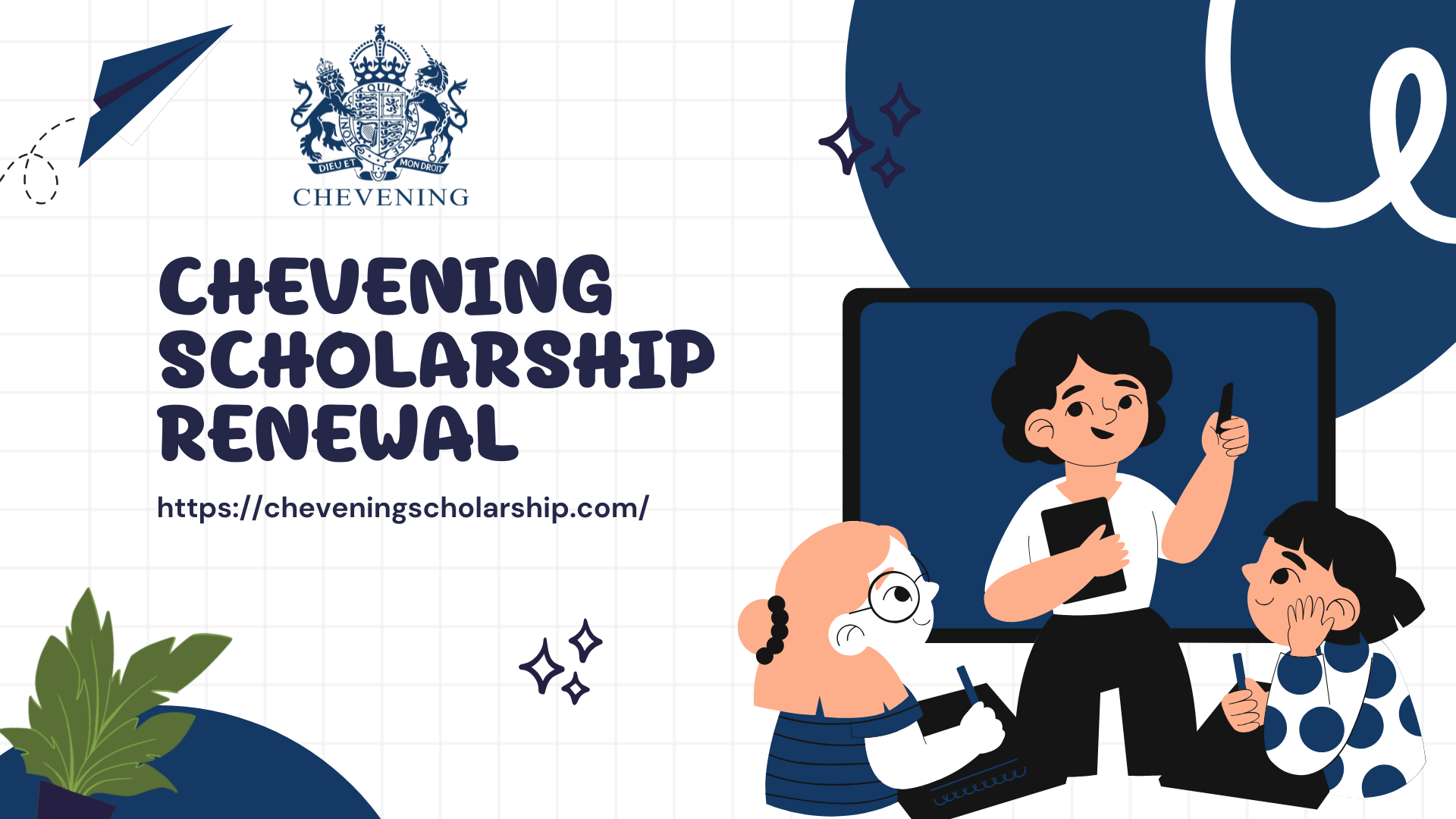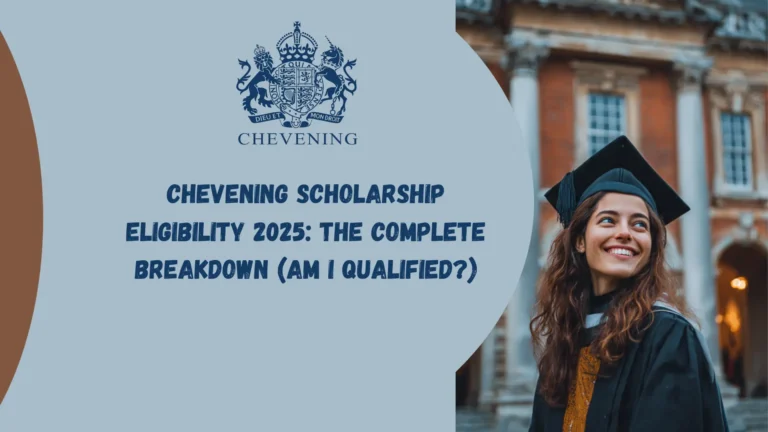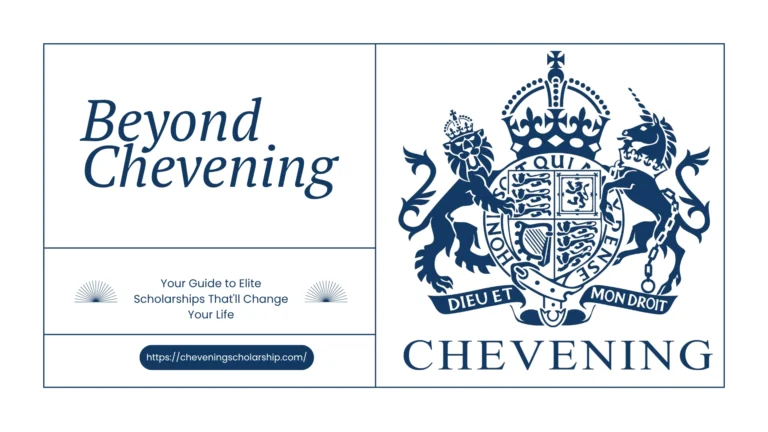Chevening Scholarship Renewal: The Truth About Extensions (And Why You Probably Can’t Get One)
Let me start with the answer most people don’t want to hear: Chevening scholarships are not renewable.
I know. You were hoping for a different answer. Maybe you’ve heard stories about someone’s cousin who got an extension, or you’ve seen forum posts suggesting renewal is possible under certain circumstances. Trust me, I understand the hope. You’re in the UK, you’ve found your groove, your research is just getting interesting, and the thought of leaving after one year feels premature.
But here’s the reality check we need to have: Chevening scholarship renewal isn’t really a thing in the way most people imagine it.
Now, before you close this tab in disappointment, stay with me. While the standard answer is “no renewals,” there are exceptional circumstances, alternative pathways, and strategic options that might achieve what you’re looking for. The Chevening scholarship extension conversation is more nuanced than a simple yes or no.
Let me walk you through everything you need to know about Chevening renewal, extension policies, what’s actually possible, and what you should be planning for instead.
Understanding the Chevening Structure: Why Renewal Isn’t Standard
The One-Year Framework
Chevening is fundamentally designed as a one-year master’s scholarship program. This isn’t arbitrary. There’s strategic reasoning behind it:
Why Chevening is one year:
- Maximizes the number of scholars they can fund annually
- Aligns with UK master’s degree structure (most are one year)
- Ensures scholars return home to implement change while connections are fresh
- Creates a continuous pipeline of new global leaders
- Maintains scholarship sustainability and reach
The Chevening scholarship renewal policy reflects this mission. They’re not trying to fully fund extended UK education—they’re creating a year-long intensive leadership development experience that you take back home.
What Chevening Actually Funds
Let’s be crystal clear about Chevening scholarship continuation terms:
Standard coverage:
- One-year master’s program
- 12 months maximum duration
- September/October start to August/September completion
- No automatic extension beyond this period
The contract you signed: When you accepted your Chevening award, you agreed to:
- Complete your master’s within the funded period
- Return to your home country for minimum two years
- Not seek UK employment or immigration routes immediately after
This matters because the Chevening scholarship renewal eligibility question starts here. Your agreement was for one year. Extensions aren’t just about wanting more time—they’re about contractual obligations and program structure.
The Hard Truth: When Renewal/Extension IS Possible
Exceptional Circumstances for Chevening Scholarship Extension
Despite the standard policy, there are rare situations where Chevening scholarship extension might be considered. Emphasis on “rare.”
Potentially valid reasons:
| Circumstance | Likelihood | Requirements |
|---|---|---|
| Serious medical emergency | Possible | Comprehensive medical documentation, university support |
| Family bereavement affecting studies | Possible | Death certificate, counseling records, academic impact evidence |
| Academic program structural requirements | Unlikely | Must be program requirement, not personal choice |
| Research delays beyond your control | Very unlikely | Extensive documentation, supervisor endorsement |
| Visa/administrative delays by UK authorities | Rare but possible | Official documentation of delays |
Circumstances that WON’T qualify:
- “I need more time to finish my dissertation” ✗
- “I want to do an internship” ✗
- “I haven’t found a job back home yet” ✗
- “I’m enjoying UK life and want to stay longer” ✗
- “My research would benefit from extra months” ✗
- “I want to improve my grades” ✗
The Chevening scholarship extension reasons must be genuinely exceptional and outside your control. Personal preference doesn’t cut it.
The Medical Emergency Exception
This is the most common successful Chevening scholarship extension request scenario.
What qualifies:
- Serious illness requiring hospitalization or extended treatment
- Mental health crisis requiring intensive intervention
- Accidents causing significant physical disability
- Conditions preventing you from completing coursework
What you’ll need:
- Detailed medical reports from UK healthcare providers
- University’s official support and recommendation
- Revised academic timeline showing completion plan
- Clear demonstration that the condition prevented normal study
Real example: One scholar I know suffered a severe car accident in March of her Chevening year. Multiple surgeries, months of recovery. She submitted comprehensive medical documentation, her university strongly supported the extension request, and she received a three-month extension to complete her dissertation. But understand: this was a legitimately exceptional circumstance, not just “I need more time.”
The Extension Request Process: Chevening Scholarship Renewal Process
If you genuinely believe you have grounds for Chevening scholarship extension, here’s how the process works.
Step 1: Contact Your Programme Manager Immediately
The Chevening scholarship extension procedure starts with communication. Don’t wait until the last minute.
When to contact:
- As soon as you realize the issue
- Minimum 2-3 months before your scholarship end date if possible
- Immediately in case of sudden emergencies
What to communicate:
- Specific nature of the exceptional circumstance
- Why it prevents you from completing on time
- How much additional time you need (be realistic)
- Evidence you already have
- Support you’ve secured from your university
Contact channels:
- Your designated Programme Manager (primary contact)
- Official Chevening email for your region
- Your university’s international office (they can advocate)
Step 2: Gather Comprehensive Documentation
The Chevening scholarship extension documents required are extensive. They’re evaluating whether your situation truly merits exceptional treatment.
Essential documentation:
- Official written request
- Formal letter explaining circumstances
- Specific extension period requested
- Clear completion timeline
- University support letter
- From your program director or supervisor
- Confirming the issue’s impact on your studies
- Endorsing the extension request
- Outlining revised completion plan
- Supporting evidence
- Medical reports (if medical reason)
- Death certificates (if bereavement)
- Official correspondence (if administrative delays)
- Any relevant third-party documentation
- Academic standing verification
- Proof you were in good standing before the issue
- Current grades and progress reports
- Evidence the issue was beyond your control
The Chevening scholarship renewal documents checklist:
- Formal request letter
- University endorsement
- Primary evidence documents
- Academic progress report
- Revised study plan
- Financial considerations (if applicable)
Step 3: Submit and Wait
The Chevening scholarship renewal timeline for decisions varies.
Typical timeline:
- Submission: When you have all documents ready
- Acknowledgment: 5-10 working days
- Review period: 4-8 weeks typically
- Decision communication: Via official email
- Implementation: If approved, details provided
During the waiting period:
- Continue your studies as normal
- Keep your Programme Manager updated on any changes
- Prepare contingency plans in case of denial
- Stay in close contact with your university
Step 4: Understanding the Decision
The Chevening scholarship extension approval rates are low. Very low. This isn’t because they’re heartless—it’s because the program structure fundamentally isn’t designed for extensions.
If approved:
- You’ll receive official confirmation with terms
- Extension period will be clearly specified
- Any additional funding (or lack thereof) will be outlined
- You’ll need to formally accept the terms
- Your return requirement timeline may adjust
If denied (more likely):
- Decision is typically final
- Limited appeal options exist
- You must complete by original deadline or arrange alternative funding
- Your Chevening obligations remain unchanged
What to Do If Extension Is Denied: Chevening Scholarship Renewal Denied
So you’ve been denied. The Chevening scholarship renewal denied scenario is disappointing but not the end of the world.
Your Immediate Options
Option 1: Complete on time (even if imperfect)
Reality check: A completed master’s degree, even if your dissertation isn’t your magnum opus, is better than an incomplete one.
Strategies to finish:
- Focus ruthlessly on meeting minimum requirements
- Drop perfectionism (submit “good enough” work)
- Leverage university support services (writing help, extensions through normal channels)
- Work with your supervisor on realistic scope reduction
- Consider pass/fail rather than aiming for distinction if it means completion
Option 2: Request university extension (separate from Chevening)
Your university might grant an extension even if Chevening doesn’t fund it.
How this works:
- Apply through normal university extension procedures
- This extends your student status, not your funding
- You’ll need to self-fund the additional period
- Visa implications need checking
- Chevening obligations kick in at original end date
Cost considerations:
- No additional tuition if you’re just finishing dissertation
- Living costs you must cover (£1,500-2,000/month minimum)
- Potential visa extension fees
- No Chevening stipend beyond your funded period
Option 3: Submit incomplete and complete remotely
Some universities allow you to submit after leaving the UK.
Requirements vary by university:
- Some allow up to 12 months submission extension
- You can’t remain in UK on student visa
- You must return home as per Chevening requirements
- Communication with supervisor continues remotely
- Degree awarded upon completion
This is actually the most common solution for scholars needing extra time.
The Appeal Process: Chevening Scholarship Extension Appeal
The Chevening scholarship extension appeal option exists but success is rare.
When you might appeal:
- You have new evidence not available during initial request
- There was clear procedural error in your case evaluation
- Circumstances have significantly worsened since initial denial
How to appeal:
- Submit formal appeal within 14 days of denial
- Provide new evidence or procedural concerns
- Maintain professional, factual tone
- Accept that appeal denial is final
Be realistic: Appeals rarely succeed. Plan for alternatives rather than banking on reversal.
The Reapplication Question: Chevening Scholarship Reapplication
Here’s where people confuse concepts. Chevening scholarship reapplication is different from renewal.
Can You Apply for Chevening Again?
Yes, but with conditions:
You can reapply for a new Chevening award if:
- You want to pursue a different master’s program
- Sufficient time has passed (typically need to complete your first degree first)
- You have new goals that warrant additional UK education
- You’ve returned to your home country and fulfilled your two-year requirement
You cannot:
- Apply for Chevening again while on your current scholarship
- Use Chevening as continuous funding for extended education
- Apply immediately after completing your Chevening year
Why this matters: “Renewal” implies continuing current funding. “Reapplication” means competing for a new, separate award. Understand the distinction.
Alternative Funding Strategies
If you genuinely need more time in the UK but can’t get Chevening scholarship renewal funding, consider these alternatives.
University-Specific Extensions
Many universities offer completion bursaries or hardship funds.
Where to look:
- Your university’s student support office
- Department-specific research funds
- Graduate school completion grants
- International student emergency funds
Typical coverage:
- £2,000-£5,000 in emergency funding
- 1-3 month living cost supplements
- Specific to dissertation completion
- Requires demonstration of need
External Scholarships and Grants
Short-term funding options:
| Source | Typical Amount | Purpose |
|---|---|---|
| British Council alumni grants | £1,000-£3,000 | Research/completion support |
| Professional association bursaries | £500-£2,000 | Field-specific support |
| Charitable trusts | Varies widely | Based on circumstances |
| Crowdfunding platforms | Varies | Personal networks |
Reality check: These are supplements, not full replacements. You’ll likely need multiple sources or personal savings.
Part-Time Work
Within visa regulations, you can work up to 20 hours weekly during term.
Realistic earnings:
- £10-£12/hour typical student jobs
- £160-£200/week maximum
- Covers some living costs but not everything
- Time commitment affects study completion
Common student jobs:
- University library assistant
- Research assistant in your department
- Tutoring
- Campus retail/hospitality
What You Should Have Done Instead: Prevention Strategies
Since Chevening scholarship renewal is so unlikely, smart scholars plan for one-year completion from day one.
Month-by-Month Strategy
September-December (Term 1):
- Front-load coursework completion
- Start dissertation topic discussions early
- Build supervisor relationship immediately
- Don’t waste time “settling in”—hit the ground running
January-March (Term 2):
- Finalize dissertation proposal by January
- Begin primary research immediately
- Submit coursework ahead of deadlines where possible
- Use reading weeks for dissertation progress
April-June (Term 3):
- Full focus on dissertation
- Regular supervisor meetings (weekly if possible)
- Submit draft chapters as you complete them
- Don’t wait until August to start writing
July-August:
- Final writing and editing
- Buffer time for unexpected issues
- Submit with at least a week to spare
- Prepare for return home
The Chevening Scholarship Renewal Tips Nobody Tells You
Tip 1: Choose a realistic dissertation topic
The most common reason people struggle to finish? Overly ambitious research scope.
Choose:
- Topics with accessible data
- Research you can complete in 3-4 months
- Projects that don’t require extensive fieldwork
- Subjects where literature already exists
Avoid:
- Topics requiring travel to your home country
- Research needing lengthy ethics approvals
- Projects dependent on external organization cooperation
- Dissertations that are really PhD proposals
Tip 2: Use every university resource
Chevening scholarship renewal support might not exist, but university support does:
- Academic skills workshops
- Writing centers (free editing help!)
- Research skills training
- Mental health services
- International student advisors
- Disability services (if applicable)
Tip 3: Manage your time ruthlessly
You have 12 months. That sounds long but disappears quickly.
Time stealers to avoid:
- Excessive travel (yes, Europe is tempting)
- Over-involvement in societies (one or two max)
- Part-time work beyond what you need
- Perfectionism in coursework (aim for good, not perfect)
- Social media rabbit holes
Tip 4: Build in buffer time
Never plan to submit your dissertation on the last possible day.
Why buffer matters:
- Supervisors get sick or go on leave
- You get sick
- Technical issues happen
- Family emergencies occur
- Research takes longer than expected
Build 2-3 weeks of buffer time. You’ll thank yourself.
Special Cases and Circumstances
Chevening Scholarship Extension Eligibility Pakistan (and Other Countries)
The Chevening scholarship renewal eligibility Pakistan question (and similar country-specific queries) comes up frequently.
Here’s the truth: Extension policies are universal—they don’t vary by your home country. Pakistani scholars, Indian scholars, Kenyan scholars—everyone faces the same renewal restrictions.
Country-specific considerations only affect:
- Initial application requirements
- Priority sectors for awards
- Available scholarship numbers
- Return requirement specifics
Extension eligibility remains the same globally: exceptional circumstances only, heavily documented, rarely approved.
Professional Fields: Chevening Scholarship Renewal Nurse and Others
The Chevening scholarship renewal nurse keyword suggests some believe certain professions have different renewal options.
The reality: Your field of study doesn’t change renewal policies. Whether you’re:
- Nursing
- Engineering
- Public policy
- Law
- Business
- Development studies
The same rules apply. One year, exceptional circumstances only for extensions.
However: Some professional master’s programs have built-in placement years or are structured as 18-month programs. If you applied for one of these and Chevening approved it, that’s different from a renewal—that was your original award structure.
Understanding the Chevening Renewal Restrictions
Let’s address the Chevening scholarship renewal restrictions comprehensively.
Why Chevening Doesn’t Do Renewals
Financial sustainability: Chevening funds approximately 1,500 scholars annually. If even 10% sought renewals, that’s 150 spots that can’t go to new scholars. Over time, this compounds.
Program mission: Chevening creates a broad network of global leaders. Funding 1,500 people for one year creates wider impact than funding 750 people for two years.
Return requirement alignment: The two-year home return requirement is tied to your scholarship completion date. Renewals complicate this timeline and reduce home country impact.
UK master’s structure: Most UK master’s programs are designed as intensive one-year programs. The system works this way intentionally—it’s efficient, rigorous, and creates qualified graduates.
The Conditions That Govern Extensions
Chevening scholarship extension conditions are strict:
You must prove:
- Circumstance was truly exceptional and unpredictable
- Circumstance was entirely beyond your control
- You were in good academic standing before the issue
- Additional time will definitively solve the problem
- University supports your request
- No alternative solutions exist
You must accept:
- Decisions are discretionary and final
- Approval doesn’t guarantee funding (might extend time but not money)
- Your return requirement obligations remain
- Extensions may affect your visa status
- No further extensions beyond approved period
The Interview Question: Chevening Scholarship Renewal Interview
The Chevening scholarship renewal interview question suggests confusion with the initial application process.
Clarification:
- There is NO renewal interview under normal circumstances
- Extension requests are evaluated on documentation
- You won’t have a panel interview for extension requests
- Communication is primarily written through your Programme Manager
However: If your situation is extremely complex or unprecedented, you might have a meeting (not formal interview) with:
- Your Programme Manager
- University representatives
- Chevening administration
This would be to clarify circumstances, not to judge your worthiness. Don’t prepare for this like the original Chevening interview.
Chevening Scholarship Competition: The Brutal Truth About Your Odds (And How to Beat Them)
If Asked “Renewal Interview Questions”
The Chevening scholarship renewal interview questions search suggests people expect interrogation.
If you do meet with officials:
- Focus on facts of your situation
- Provide clear, honest information
- Bring all documentation
- Don’t exaggerate or fabricate details
- Accept their guidance professionally
The Forms and Practical Process
Chevening Scholarship Renewal Form
Looking for a Chevening scholarship renewal form? Here’s why you won’t find one:
There’s no standard form because:
- Renewals aren’t a regular program feature
- Each case is evaluated individually
- Requests are made through direct communication
- Documentation varies based on circumstances
What you do instead:
- Formal letter to Programme Manager
- Supporting documents as relevant
- University endorsement letter
- Follow any specific guidance they provide
Chevening Scholarship Renewal Email
Need a Chevening scholarship renewal email template?
Basic structure:
Subject: Request for Scholarship Extension – [Your Name] – [Reference Number]
Dear [Programme Manager Name],
I am writing to formally request an extension to my Chevening Scholarship due to [exceptional circumstance].
[Brief paragraph explaining situation]
[Paragraph explaining impact on studies]
[Paragraph outlining support from university and revised timeline]
I have attached [list documents] to support this request.
I understand extension requests are exceptional and appreciate your consideration of my circumstances.
Sincerely,
[Your name]
[Contact details]
Remember:
- Professional tone
- Factual, not emotional
- Clear and concise
- Well-documented
- Respectful of their decision-making authority
The Success Rate Reality
Chevening Scholarship Extension Approval Rate
What’s the Chevening scholarship extension approval rate?
Honest answer: There are no published statistics, but anecdotal evidence suggests:
- Less than 5% of scholars request extensions
- Of those, perhaps 10-20% are approved
- So roughly 0.5-1% of total scholars receive extensions
Why so low:
- Most situations don’t meet “exceptional” threshold
- Many scholars find alternative solutions
- University extensions can resolve some cases
- Program structure intentionally limits this
This isn’t mean-spirited: It’s about maintaining program integrity and sustainability.
What Happens After Chevening: The Bigger Picture
Since Chevening scholarship continuation through renewal is unlikely, let’s talk about what actually happens after your year.
The Return Requirement
Non-negotiable terms:
- Return to home country for minimum two years
- Cannot work in UK immediately after
- Cannot extend visa for UK employment during this period
- Chevening tracks compliance
What the two years looks like:
- Return home by scholarship end date
- Spend minimum 24 months in home country
- Can travel internationally but must be based at home
- After two years, your obligations are fulfilled
Consequences of non-compliance:
- Required to repay scholarship costs
- Banned from future UK government programs
- Reputational damage in professional networks
- Potential UK visa complications in future
Making the Most of Your One Year
Instead of fixating on Chevening scholarship renewal, focus on maximizing your actual year:
Academic excellence:
- Engage deeply with coursework
- Build meaningful supervisor relationships
- Produce quality research
- Network with faculty
Professional development:
- Attend conferences and seminars
- Join relevant professional bodies
- Develop UK professional network
- Seek mentorship opportunities
Cultural experience:
- Travel during breaks
- Engage with UK culture meaningfully
- Build international friendships
- Develop global perspective
Return preparation:
- Maintain home country professional connections
- Plan your return role strategically
- Document your learning and growth
- Build bridges for continued collaboration
Alternative Pathways to Extended UK Study
If you’re determined to spend more time studying in the UK after Chevening, here are legitimate pathways (that don’t involve renewal).
PhD Programs
After completing your Chevening master’s and fulfilling your two-year return requirement, you could:
Apply for PhD funding:
- University scholarships
- Research council funding
- External PhD scholarships
- Some countries offer PhD scholarships for their citizens
Timeline:
- Complete Chevening → Return home for 2 years → Apply for PhD → Return to UK
This is legitimate and doesn’t violate Chevening terms.
Professional Development Programs
Short-term programs don’t conflict with Chevening:
Options include:
- Executive education programs (few weeks)
- Professional certification courses
- Summer schools
- Research visits (if employed and sponsored)
Key requirement: These must be after your two-year return obligation is complete.
Employment-Sponsored Return
After two years home, if you secure UK employment:
Legitimate pathway:
- Fulfill two-year requirement
- Apply for UK jobs from home country
- Employer sponsors work visa
- Return to UK legally
Some Chevening alumni eventually return to UK this way—entirely appropriately.
Chevening Scholarships Benefits: The Complete Package Worth £50,000+ (And What Money Can’t Buy)
The Chevening Scholarship Renewal Update: Current Policies
Looking for the latest Chevening scholarship renewal update?
Current policy (as of 2024-2025):
- No changes to fundamental renewal restrictions
- One-year scholarships remain standard
- Exceptional circumstances policy unchanged
- Two-year return requirement still mandatory
Recent clarifications:
- COVID extensions have ended (no more pandemic-related extensions)
- Visa delays are evaluated case-by-case
- Medical documentation requirements remain stringent
- University support is increasingly emphasized in decisions
Check official sources: Always verify current policies at the official Chevening website, as administrative details may update.
Support Resources
If you’re struggling with completion or considering an extension request, utilize these Chevening scholarship renewal support resources:
Official channels:
- Your Programme Manager (primary contact)
- Chevening Secretariat
- Your country’s British Council office
- UK university international office
University resources:
- Academic skills center
- Student wellbeing services
- Disability services (if applicable)
- International student advisor
- Graduate school office
Peer support:
- Chevening community groups
- University student support groups
- Mental health services
- Alumni mentors
Remember: Asking for help early is smart, not weak. If you’re struggling, communicate before it becomes a crisis.
The Bottom Line on Chevening Scholarship Renewal
Let’s bring this full circle with the unvarnished truth about Chevening scholarship renewal:
What’s real:
- Chevening is a one-year program
- Extensions are exceptional, not normal
- Approval requires extraordinary circumstances
- Most scholars complete in one year successfully
- Alternative solutions often exist
What you should do:
- Plan for one-year completion from day one
- Front-load your work
- Choose realistic dissertation topics
- Build buffer time into your schedule
- Use university resources maximally
- Communicate early if problems arise
What you shouldn’t do:
- Bank on getting an extension
- Plan as if renewal is normal
- Exaggerate circumstances to justify extension
- Wait until the last minute to address problems
- View Chevening as a two-year opportunity
The empowering truth: Thousands of Chevening scholars complete successfully every year within the one-year framework. The structure works. It’s intensive, challenging, and transformative precisely because it’s concentrated into 12 months.
You were selected because Chevening believed you could handle this. They were probably right.
Your Action Plan
If you’re currently on Chevening and worried about completion:
- Assess realistically: Can you complete with focused effort?
- Identify obstacles: What’s genuinely preventing completion?
- Use university resources: Have you explored all available support?
- Communicate early: If there’s a real problem, contact your Programme Manager now
- Consider alternatives: Could you complete remotely? Reduce scope?
If you’re planning to apply for Chevening:
- Understand the commitment: One year to complete a master’s
- Choose programs wisely: Ensure they’re achievable in 12 months
- Prepare mentally: This will be intensive
- Accept the terms: Including the no-renewal policy
- Plan your return: Two years home is non-negotiable
If you’re considering an extension request:
- Evaluate honestly: Is this truly exceptional?
- Gather documentation: Comprehensive evidence required
- Secure university support: Essential for any chance
- Prepare alternatives: Approval is unlikely
- Accept outcomes gracefully: Decisions are final
Chevening Scholarships Eligibility for Pakistani Students: Your Complete 2025 Guide
Final Thoughts: Making Peace with One Year
I’ve spent 2,000+ words essentially saying “no, you can’t renew Chevening.” That might feel harsh. But here’s the perspective shift:
One year is enough.
Enough to earn a respected UK master’s degree. Enough to build meaningful international networks. Enough to develop new skills and perspectives. Enough to have transformative experiences. Enough to set up your next career chapter.
Chevening scholars have gone on to become ministers, CEOs, leading academics, social entrepreneurs, and change-makers. They did it with one funded year.
The limitation forces focus. The constraint creates intensity. The timeline demands efficiency. And the result? You don’t waste time. You don’t coast. You maximize every moment.
That’s actually the gift of the one-year structure, even when it feels like a curse.
So if you’re on Chevening now, stop googling renewal options and start maximizing your remaining time. If you’re applying, embrace the one-year framework rather than fighting it. If you’ve been denied an extension, find alternative solutions and move forward.
Your Chevening year isn’t meant to be your entire UK experience—it’s meant to be the catalyst for everything that follows.
Make it count.
Struggling with Chevening completion or considering an extension request? Share your situation in the comments below. Let’s crowdsource solutions together. And if you successfully completed Chevening in one year, share your strategies to help the next cohort.
Remember: You’ve got this. Thousands before you did it. You will too.







